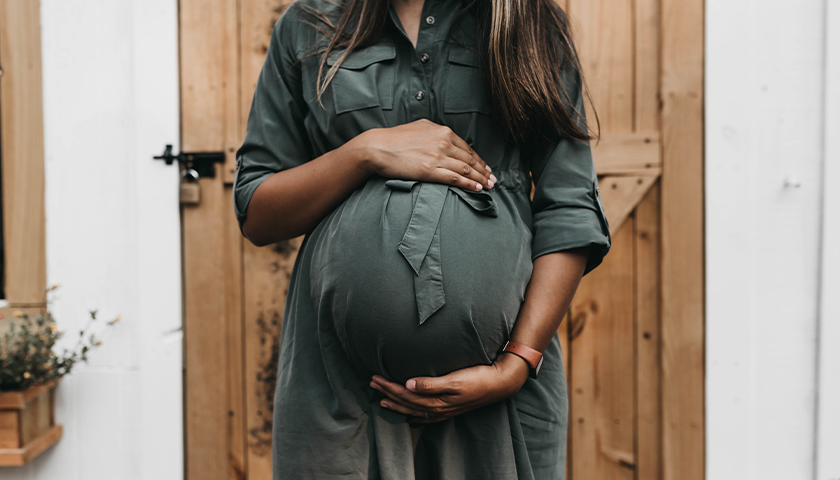by Mary Margaret Olohan
Studies on how COVID-19 vaccines affect fertility are “in the works,” but some are still in the planning stages, the Centers for Disease Control and Prevention (CDC) told the Daily Caller News Foundation.
Anxieties over whether the COVID-19 vaccines impact fertility have discouraged some U.S. women from obtaining the vaccines, though the CDC has not found evidence that coronavirus vaccines “cause female or male fertility problems.”
After the Food and Drug Administration issued the first Emergency Use Authorization (EUA) of the COVID-19 vaccine in December 2020, researchers found that the five “most queried terms” on Google were “COVID Vaccine Fertility,” ” COVID Vaccine and Infertility,” “COVID Vaccine Infertility,” “COVID Vaccine Fertility CDC,” and “COVID 19 Vaccine Infertility,” according to a June 2021 study.
 CDC spokeswoman Martha Sharan told the DCNF in mid-July that “several studies are in the works” but hedged that “some are still in the planning stages.”
CDC spokeswoman Martha Sharan told the DCNF in mid-July that “several studies are in the works” but hedged that “some are still in the planning stages.”
“At this time, CDC and other researchers are looking at available data to investigate these topics,” CDC public affairs specialist Curtis H. Gill told the DCNF Tuesday. “In general, studying impacts on fertility inherently takes time. A person needs to be unable to get pregnant for at least 6 months or a year depending on age to meet the definition of infertility.”
Gill emphasized that there is no evidence that any of the coronavirus vaccines affect future fertility, noting that “based on how these vaccines work in the body, there is not a plausible mechanism to suggest they would have any impact on fertility.”
“Anecdotally, so far, we have not heard any reports related to difficulty with conceiving after the trials,” he said. Gill also referred the DCNF to recommendations from the American Society for Reproductive Medicine stating that “COVID19 vaccination does not impact male or female fertility or fertility treatment outcomes.”
One study published in May 2021 used rats to examine the impact of the mRNA-based COVID-19 vaccine, BNT162b2, on female fertility and prenatal and postnatal offspring development. That study found that there were no vaccine-related effects on the rats’ fertility and that the study “enabled initiation of a clinical study in pregnant women.”
Multiple researchers involved in the study were simultaneously employed by and held stock in Pfizer, Inc., and two of the researchers were employed by and held stock in BioNTech SE.
Another Israeli study investigating the effect of the mRNA SARS-CoV-2 vaccine on patients undergoing in vetro fertilization (IVF) found that the vaccine “did not affect patients’ performance or ovarian reserve in their immediate subsequent IVF cycle,” though it noted that “future larger studies with longer follow-up will be needed to validate our observations.”
Yale University MD-Ph.D. candidate Alice Lu-Culligan suggested to NPR in late July that fears about the vaccines’ impacts on fertility may have arisen after “a lot of women noted heavy menstrual periods” after they received the vaccine this spring.
Lu-Culligan, who studies the immune system and reproductive health, said that it’s possible the vaccine could temporarily altar menstruation processes since immune cells play an important part in a woman’s period.
“It’s very plausible that you could have abnormalities to the typical menstrual cycle,” she told NPR.
In a late July piece for The Conversation, University of Miami Associate Professor of Urology Ranjith Ramasamy argued that COVID-19 itself may cause male infertility and sexual dysfunction while the vaccines will not.
“One reason for vaccine hesitancy is the perception among many that COVID-19 shots might affect male fertility,” Ramasamy wrote. “Our research shows the opposite. There is no evidence the vaccine harms a man’s reproductive system. But ignoring the vaccine and contracting COVID-19 very well could.”
A November 2020 Canadian study, conducted before vaccines were widely distributed, found that “the influence of COVID-19 on the female and male reproductive system needs further investigation.”
“Future studies should include assessment of ovarian function in female patients during the acute and recovery phase,” said the study, which examined the impact of COVID-19 on human reproductive biology. “Furthermore, since there is no long term follow up, significant effects of this virus on reproductive function, cannot be excluded as yet.”
The study said that it is “currently unknown whether COVID-19 could induce a chronic systemic pro-inflammatory effect, which may impair ovarian reserve.”
“Evidence so far suggests potential effects on the male reproductive system from COVID-19 infection. However, data regarding the effect on semen parameters needs further investigation,” the study said. “Future studies should focus on long-term effects on gonadal function in recovering patients. Fertility evaluation and follow-up in the months and years following recovery from COVID-19 infection should be considered for all COVID-19 male patients.”
The FDA did not immediately respond to a request for comment from the DCNF.
– – –
Mary Margaret Olohan is a reporter at Daily Caller News Foundation.





